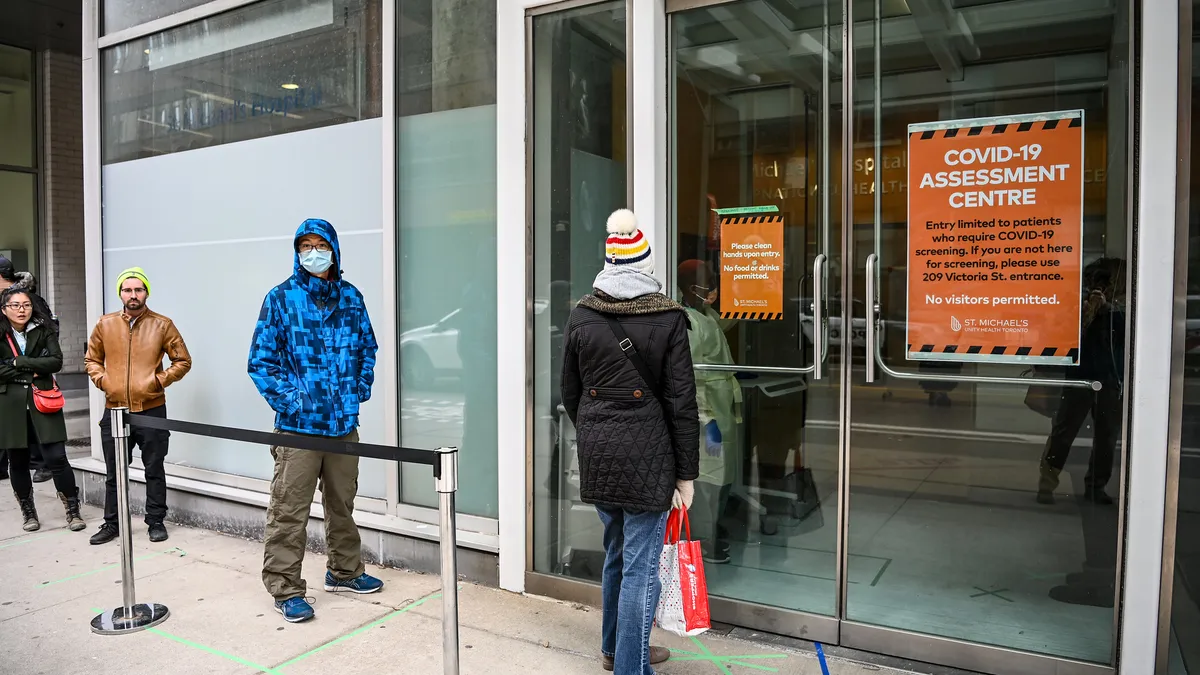The following is a guest post from Mark Curtis, Accenture Interactive's head of innovation, and Bill Theofilou, Accenture Strategy's global growth and corporate strategy lead. Opinions are the authors' own.
As COVID-19 evolved into a global crisis, it required speedy action and aid from corporations, government bodies and other organizations. Coupled with this pandemic, the U.S. is grappling with longstanding issues of racism and inequality that are manifesting in introspection and protests around the globe. The current socioeconomic volatility has put a sharper focus on all brand action.
In 2020, increasingly socially minded consumers have higher expectations for brands than ever. We know companies can no longer merely provide a product or service. Their power and reach driven by the pursuit of growth means consumers see them as responsible for answering tough questions related to overall purpose on matters of societal, economic and environmental progress.
All eyes on you
COVID-19 and social justice-oriented movements around the globe have consumers watching brand commitments, especially those prioritizing the health and safety of the world. If CEOs fail to act, they could face harsh consumer scrutiny that could have lingering effects on business.
We've been looking at how brands can take a clear and purposeful stand. In a recent report, COVID-19: A brand. New. Purpose., we highlight four actions leaders can take to navigate this decade of "never normal" and emerge as stronger brands.
Expand your purpose
COVID-19 has given us all a common purpose and thereby elevated the very idea of a company's purpose. As a result, consumers have become increasingly used to seeing brands take a clear stand on important issues and crises. Purpose has been on the rise even before COVID-19. Just last year, over 180 chief executives from the Business Roundtable, including leaders from Fortune 500 consumer brands, issued a surprisingly provocative statement that the purpose of a corporation should be to help other stakeholders such as employees, the environment and ethical suppliers instead of just shareholders. This drastic shift in perspective is now becoming the norm of what we expect from a company. In June 2020, a statement was issued that the roundtable would create a Special Committee of the Board of Directors to advance racial equality and justice solutions.
The millennial consumer group is a vital target audience for brands, and they are leading the way when it comes to socially mindful purchases. According to 5WPR's 2020 Consumer Culture Report, 83% of millennials feel strongly the brands they buy from should align with their values, and 76% want to see CEOs actively using their platform to address important social issues. We saw the importance of brands taking purposeful action in the early stages of COVID-19's impact on U.S. health and employment.
For example, broadband and wireless companies signed a "Keep Americans Connected Pledge" to not charge late fees or cancel services for consumers effected by COVID-19, and now AT&T, Comcast and Verizon are extending this pledge through June. While organizations historically have prioritized immediately profitable business strategies, charitable initiatives such as these are vital as the 5WPR study found 65% of millennials have boycotted a brand taking an opposing stance on an issue, and 62% favor products addressing their political and social beliefs. Failure to act correctly could have dire consequences as our research at Accenture found; 43% of consumers walk away when disappointed by a brand's words or actions on a social issue.
Meet consumer needs
The rise of purpose has often been linked to Maslow's famous hierarchy of needs, which shows how, as individuals or societies evolve, needs move up the hierarchy from physiological (e.g. food, warmth, shelter) to love and belonging, to esteem and self-actualization. However, the spread of COVID-19 has caused human requirements to fall back to the very basic needs of survival in only a few months. Around the world there is more anxiety around food, personal safety and health. During these trying times, we are witnessing CEOs closely monitor the needs of consumers and employees so they can act on them in real time.
We can expect the impact of COVID-19 on consumer behavior and values will likely continue for years to come. A recent study by CPG sales and marketing agency Acosta found 31% of shoppers feel it's extremely or very likely they will do more online grocery pickup or delivery than they did before. It is imperative that CEOs continue to monitor consumer needs and desires to provide them with the best customer experience.
Stay relevant as consumption changes
When consumers reemerge from the pandemic to more normal activities, we will see different patterns of consumption and purpose. We're increasingly expected (and expect ourselves) to make "right" choices about what we buy or do, and we will increasingly be criticized if we don't. As a result, COVID-19 will likely contribute to the momentum we are seeing among consumers to shop ethically, and brands must take notice to stay relevant and profitable. In fact, Nielsen predicts the U.S. sustainability market will reach $150 billion in sales by 2021.
An annual study released this month by marketing consultancy Good. Must. Grow evaluates the likelihood for conscious consumerism and charitable giving and then assigns a Conscious Consumer Spending Index. This year's CCS Index saw a 15% increase to 46 on a 100-point scale — the highest score since 2017. Going forward, we can anticipate the consumer appetite for ethical purchases will continue to grow, and brands must be ready to meet this demand. It's as if the reset button we all had to press in March made us rethink our lives across the board.
Take thoughtful action
A significant takeaway from the crisis is about how we can quickly change assets, capabilities and priorities to innovate and contribute to the needs of society. As a result, consumers will expect quick and thoughtful action in the future. We are already seeing it, as a recent report by engagement technology company Social Media Link revealed in their COVID-19 Brand Sentiment Navigator Report. It analyzed the best steps a brand can take to receive positive feedback from consumers. Over half of participants indicated they wanted to see clear brand action to keep consumers and employees safe.
We are continuing to see how important it is for brands to respond quickly and effectively to their consumers' concerns during a crisis to reassure them and to maintain a close relationship to the brand. Accenture found relational brands must use credibility, reliability and intimacy to create trust, which 76% of CEOs say will be critical to business competitiveness in their industry in the next five years. Ultimately, what is good for consumers will continue to be good for businesses.
What's next
As we look ahead, we will continue to see consumers view their purchases and brand loyalties as an extension of themselves and their values. These values will now also reflect a changing public perception of how issues of racial inequality should be addressed to ensure a more inclusive future. This future for all brands will require not only purposeful views, but meaningful follow-through in actions.






















